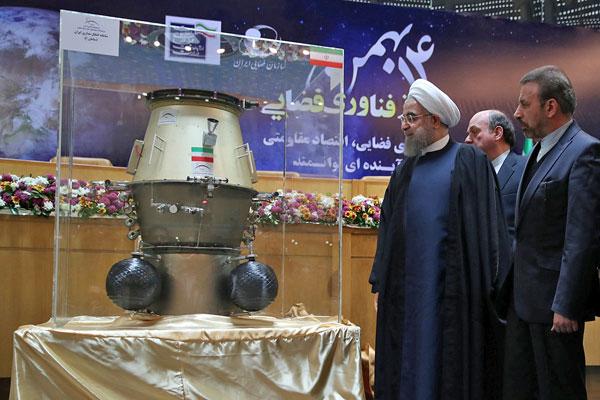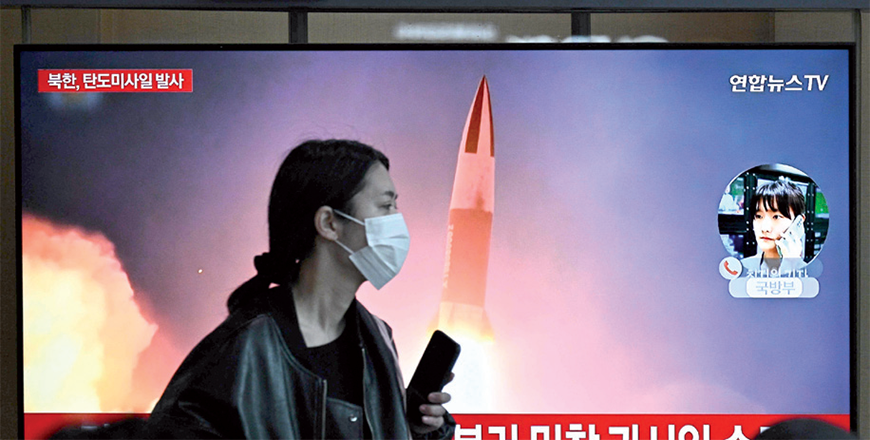You are here
Ballistic missiles ‘code of conduct’ seeks new member states
By Suzanna Goussous - Sep 28,2016 - Last updated at Sep 28,2016
AMMAN — The Hague Code of Conduct against Ballistic Missile Proliferation (HCoC) must achieve “real universality” to be fully effective, a Kazakh official said at a panel in Amman on Wednesday.
Established in November 2002, the HCoC is an international code that works towards regulating access to ballistic missiles capable of delivering weapons of mass destruction, calling for control of production, export, usage, and testing.
Some 138 states have subscribed to the code, most recently India which joined in June, but the HCoC cannot be fully implemented until it achieves universal subscription, said Nurken Urmantayev, a foreign ministry official from Kazakhstan, which is chairing the HCoC’s meetings and discussions for 2016-2017.
“None of the measures can be effective and sufficient if it is not universal,” said Urmantayev, who added that the HCoC sought to subscribe states that are engaged in conflict.
The HCoC seeks “real, not decorative” universality, he said, adding that member states try to approach countries that have not subscribed to the code.
“We believe that outreach activities will step-by-step contribute to the code becoming universal. During our chairmanship, we are conducting outreach seminars in the Middle East, South East Asia and Central Asia,” he said.
Bruno Hanses, senior expert at the European External Action Service, said the HCoC was launched with the aim of preventing the increasing threats caused by ballistic missiles worldwide.
“We remain convinced that the HCoC is, for the time being, the best instrument at our disposal to build and fortify [multilateral] relations,” Hanses said.
Kazakhstan’s ambassador to Jordan, Azmat Bedibay, said that with rising international tensions and the increased risk of weapons of mass destruction being used, international efforts to regulate the trade and use of ballistic missiles are greatly needed.
The security and stability of countries are directly related to their economic measures and development, the ambassador said.
He called on Arab member states to subscribe to the code to build well-rooted multilateral relations, noting that so far only Jordan and Iraq had signed up.
For his part, Qasim Hussein, from the Iraqi National Monitoring Authority for Non-Proliferation, said states who subscribe to the code are required to respect the value of stopping the spread of ballistic missiles and weapons of mass destruction.
Bernd Kubbig, coordinator of the Academic Peace Orchestra Middle East, said the most alarming fact about the HCoC was that “many member states do not take the code seriously”.
“Many members do not have real credibility. You cannot ask other countries to forego their missiles… in that respect,” he explained.
“Except for Jordan and Iraq, no Middle Eastern country is part of the regime for many years now. I think this has its clear causes,” he added.
Kubbig said that in order to limit the use of missiles, one “should have a clear picture of the region” and the reasons behind countries’ concerns with the missiles.
“You have to put missiles in their regional context… Go to the Middle East and listen. Listen to the concerns of those who have these missiles… these countries that have not been part of HCoC so far will tell you what their reasons are,” he added.
Related Articles
DUBAI — Iran's defence minister said on Wednesday it had tested a new missile but this did not breach the Islamic republic's nuclear accord
WASHINGTON — The United States issued a pre-emptive warning to Iran on Thursday against pursuing three planned space rocket launches that it
SEOUL — North Korea fired multiple short-range ballistic missiles on Monday in what analysts said was a calculated move to grab attention as

















